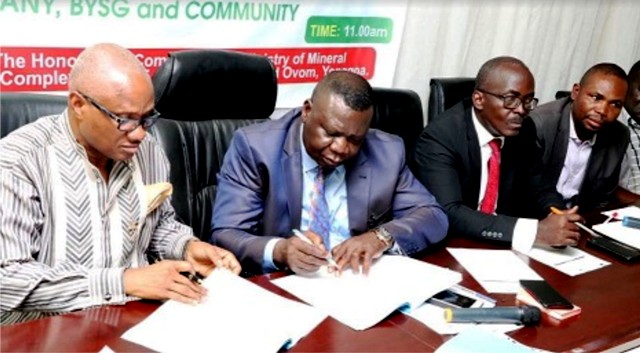Business
FG Seeks Bangladesh’s Support On Flood Resistant Seeds

The Federal Government has called for partnership with the People’s Republic of Bangladesh to develop flood resistant seed varieties to ensure food security in the country.
The Minister of State for Agriculture and Rural Development, Sen. Heineken Lokpobiri, made the call when the High Commissioner of Bangladesh, Mr Shameem Ahsan, visited him in Abuja yesterday.
Lokpobiri said that Bangladesh had made silent revolution in agriculture as a result of the country’s dedicated investment in research and technology.
The minister expressed regrets that although Nigeria had about 30 research institutes and Colleges of Agriculture, it had yet to achieve food security.
According to him, “food security is indeed the real security of any country.
“Nigeria is happy about this proposed partnership because of our common historic antecedents.
“When there is hunger, there is bound to be all sorts of social problems and most of the problems in Nigeria did not just start today.
“It is as a result of several years of neglect in investing on food security. Past governments did not invest in research, technology.
“We will be glad to strengthen our ties, we will partner with you to see how we can get improved seeds.’’
Earlier, Ahsan said the aim of his visit was to see possibilities of Bangladesh participating in the forthcoming Agri-Tech Expo in the country.
He said the proposed participation of that country was to ensure transference of experiences and expertise between the countries.
The high commissioner said that although Bangladesh was one of the most climate vulnerable countries, it had attained self-sufficiency in food production through improved technologies.
Ahsan noted that the country through its scientists had invented local seed varieties that could cope with climate change and water-logged areas.
“These seed varieties can withstand water logging and produce well. Nigeria plays a leadership role in Africa, we need closer cooperation with both countries so we can benefit mutually.
“We will be happy to attend the Agri-Tech Expo in Nigeria by November so that it will give us an opportunity to showcase our performances, achievements and expertise.’’
Business
NCDMB, Jake Riley Empower 250 Youths On Vocational Skills

Business
NUJ Partners RSIRS On New Tax Law Education

Transport
Nigeria Rates 7th For Visa Application To France —–Schengen Visa

-

 Politics3 days ago
Politics3 days agoPFN Rejects Call For INEC Chairman’s Removal Over Genocide Comments
-

 Rivers3 days ago
Rivers3 days agoFasthire, PHCCIMA, CIPM Host CareerFest 2026 In PH
-

 Sports3 days ago
Sports3 days agoEnekwechi wins Orlen Cup in season opener
-

 Politics3 days ago
Politics3 days agoHoodlums Disrupt LP-ADC Defection Event In Lagos
-

 Sports3 days ago
Sports3 days agoFalconets, Senegalese Lionesses arrive Ibadan for qualifier
-

 Sports3 days ago
Sports3 days agoSimba open Nwabali talks
-

 Politics3 days ago
Politics3 days agoRemoval From INEC’s Portal, Abure-Led LP Faction Mulls Legal Action
-

 Niger Delta3 days ago
Niger Delta3 days agoTinubu, Jonathan, Diri Pay Last Respect To Ewhrudjakpo

